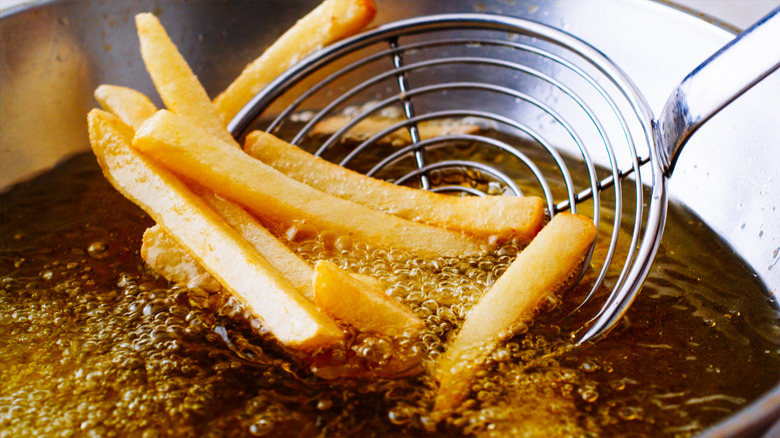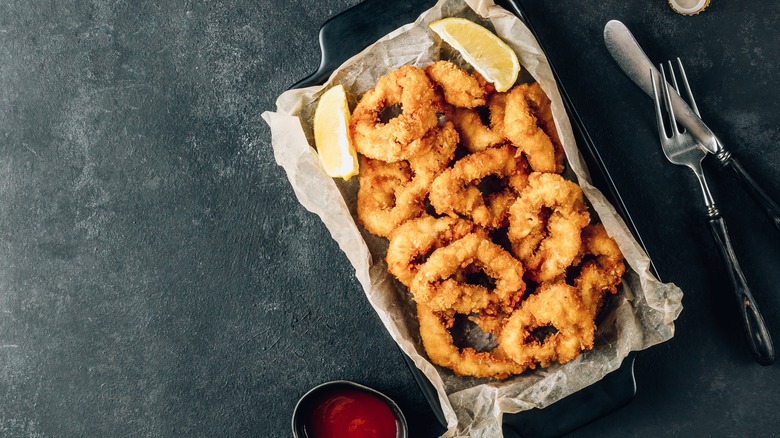Fresh Oil Frying Is The Overlooked Method That Deserves Your Attention
Who doesn't like fried food? It's crisp, crunchy, and deliciously greasy in all the right ways. But while fried food is universally enjoyed, the process of frying food is a matter of debate. At the center of the frying food conundrum is almost always, the oil. Once you've jumped the hoops of finding the right oil, using it at the right temperature, and using the correct vessel to heat it, there comes the question of reheating it. Can you reuse the oil that you just used to fry chicken to make a batch of French fries too? It turns out that you can, but it might be best that you don't.
While it may seem like an unnecessary waste of time, money, and effort to pour a fresh batch of oil, LiveStrong finds that reusing oil can be harmful. Frying oil that hasn't been strained off all debris and stored in the refrigerator is prone to bacteria that can lead to food poisoning. Reheated oil tends to be more acidic, raises bad cholesterol in the body, and causes inflammation that leads to several problems like obesity (via NDTV).
At the same time, The Guardian suggests that it is possible to reuse frying oil as long as you're careful to not let it overheat and smoke. As long as you're careful of a few things, it is possible to use frying oil. But it turns out, there may be advantages to fresh oil frying beyond just health concerns.
Fresh oil frying can keep fried food from becoming too greasy
Cleaning and storing old oil may be a pain, but fresh oil isn't only the safer option. Using fresh frying oil has another advantage if you're ready for some science.
Serious Eats explains that the process of frying works when the temperature of oil drives out the moisture from food and allows oil to take the place of water instead. But oil happens to be hydrophobic, meaning, it doesn't mix well with water. This is why when you deep fry food, not a whole lot of oil will be absorbed into it immediately. As oil is cooked and breaks down, oil becomes less hydrophobic. Eventually, this will lead to oil entering your food too much and too quickly making it greasy, soggy, and far from the crispy and crunchy that you want it to be.
Pitco also points out that oil oxidizes when it is exposed to oxygen, a process that's made faster by light and heat. It's also possible that the food you're frying has been salted which is another thing that accelerates the process of oxidization. As oil oxidizes, it gives off an unpleasant smell and negatively impacts the flavor of fried food. So if you're in doubt, it may be best to stick to using fresh oil each time.

